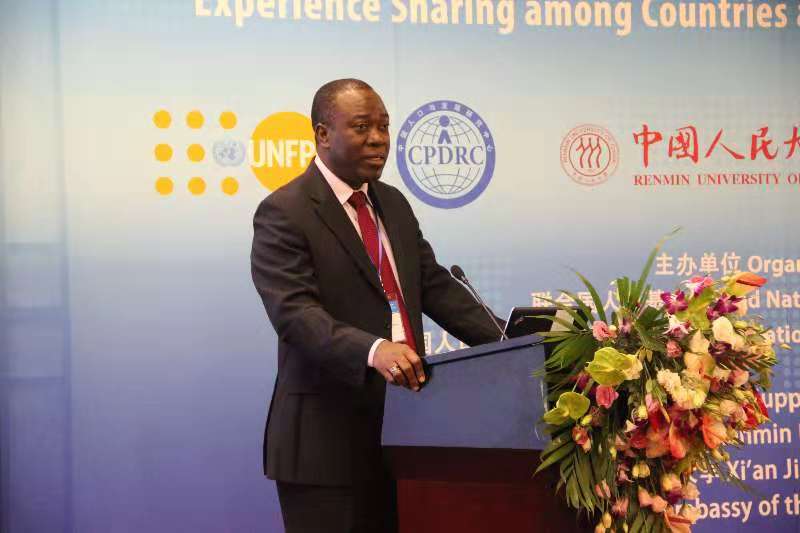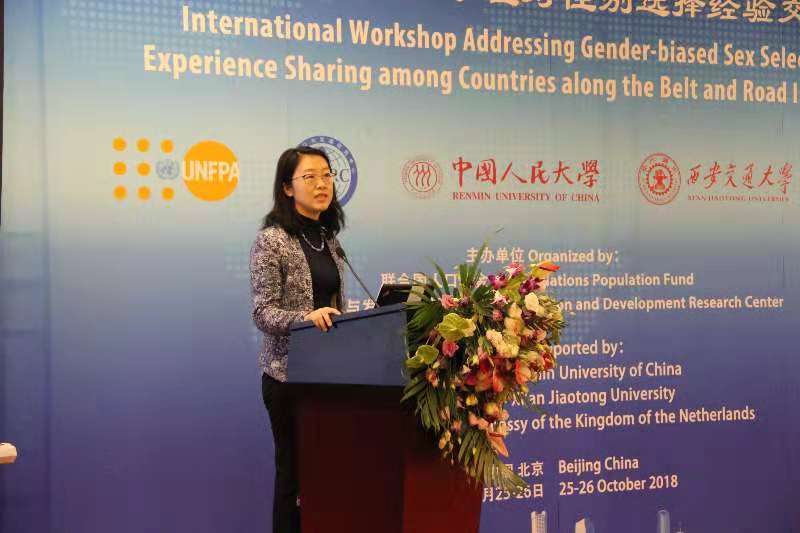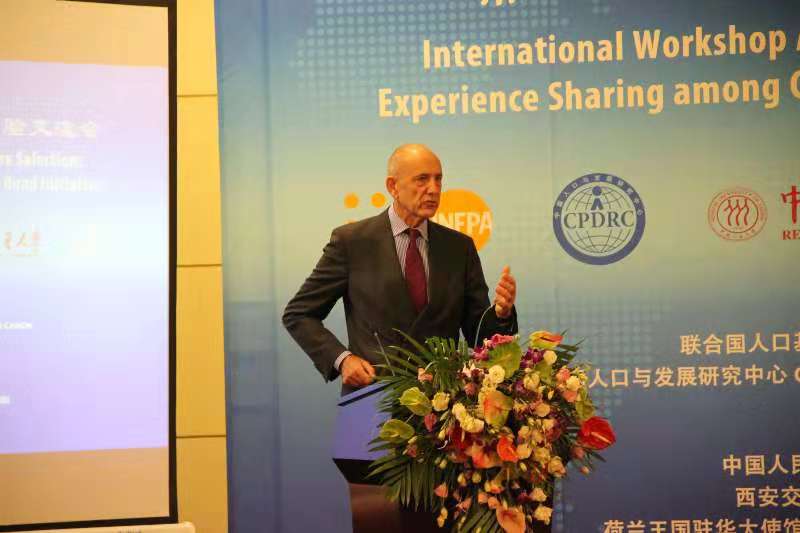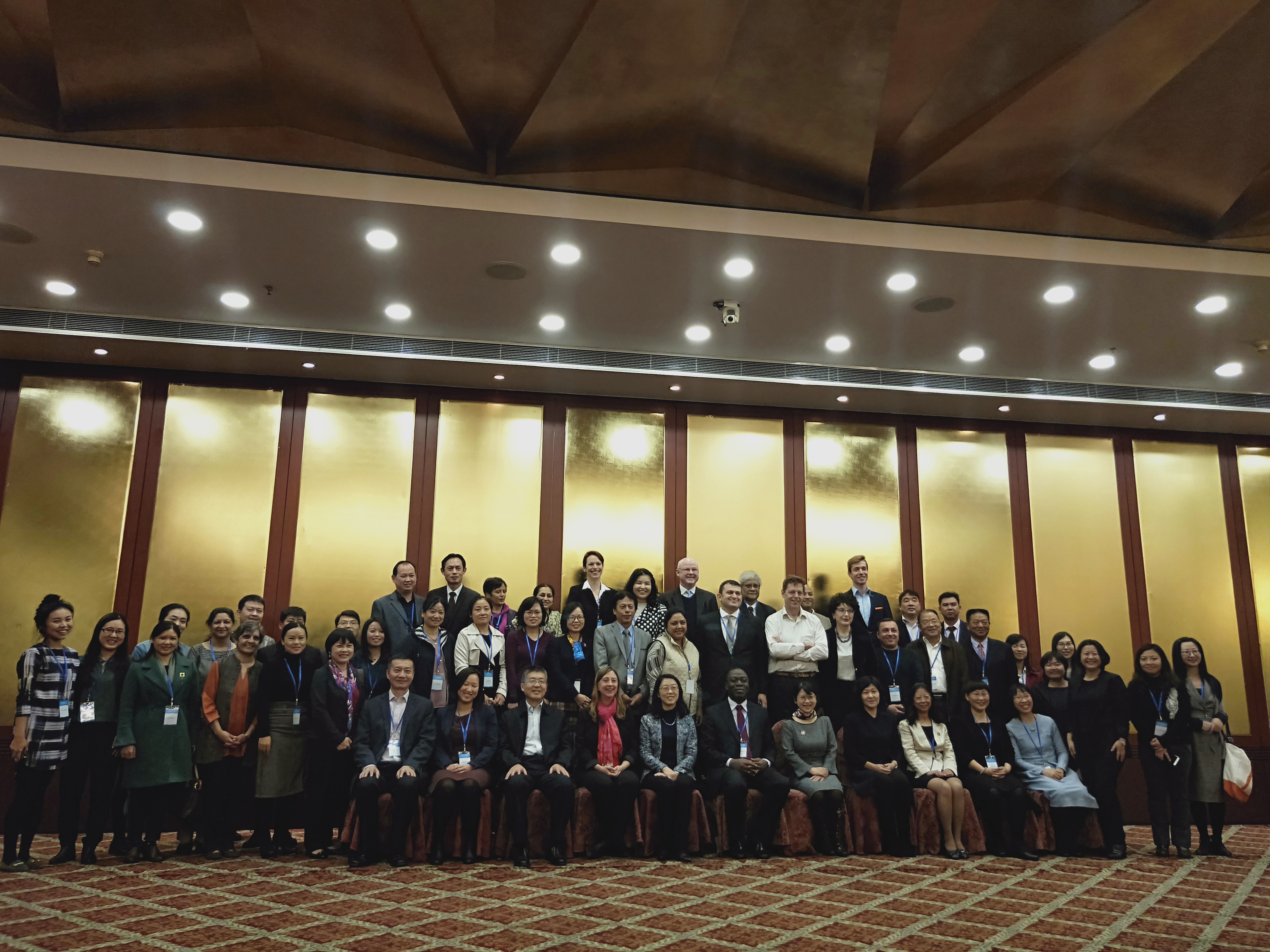BEIJING, China – China and countries along the Belt and Road are gathering in Beijing today for an international workshop addressing gender-biased sex selection.
The workshop is co-organized by the United Nations Population Fund (UNFPA) and China Population and Development Research Center, with support from Renmin University of China, Xi’an Jiaotong University and the Netherlands Embassy.
The theme of the workshop reflects critical issues related to the gender-biased sex selection and the sex ratio imbalance that have been faced in many countries. Globally, the imbalanced sex ratio at birth due to son preference have grown in a number of South Asian, East Asian, and Central Asian as well as East European countries in recent decades.

“Discrimination against girls anywhere in the world is a human rights violation, which must be stopped. Girls, like boys, deserve equal love, equal opportunity and equal rights throughout their lives,” said Dr. Babatunde Ahonsi, Representative of UNFPA in China.
“China’s Belt and Road Initiative provides a new international cooperation platform to advance gender equality and women’s health and rights in countries along the Belt and Road for achieving the global agenda.” he said.
Gender-biased sex selection in favour of sons is a manifestation of gender inequality and the unequal value given to girls. It is a symptom of pervasive social, cultural, political and economic injustices against girls and women. Worldwide, the sex ratio at birth normally ranges from 103 to 107 boys to 100 girls.
China has witnessed the most prolonged and significantly skewed sex ratio at birth since the early 1980s. In 2004, it peaked nationally with 121.18 boys born for every 100 girls. But the figure has been falling in the past years and stood at 112.88 in 2016.

“The Chinese government has constantly attached great importance to the issues of women,” said Madam Cai Fei, Deputy Director General of the Ageing Health Department, National Health Commission of China, “by conducting the national ‘Care for Girls’ campaign, we have protected the basic rights and interests for millions of women and girls, and helped create a favorable environment for the comprehensive development of girls.”
To outlaw sex selection and address the underlying problem of son preference, China has strengthened its public policy to crack down on fetal sex determination and sex-selective abortion, as well as implemented measures to promote gender equity.

“For the Netherlands, promoting women’s rights and gender equality is a top priority,” said Mr. Ed Kronenburg, Ambassador of the Netherlands Embassy to China, “it is important to increase the availability of research for evidence based policy making, address the root causes of imbalanced sex ratio, and improve multi-sectoral cooperation.”
As a steadfast and generous partner of UNFPA, the Netherlands has contributed to UNFPA’s projects in Anhui, Hubei and Guangxi to address the root causes of son preference since its start in 2015, in collaboration with national and local governments.
More than 100 delegates from government institutions, academia, think-tank agencies of China, Bangladesh, Cambodia, India, Armenia, Georgia, Vietnam, Azerbaijan, South Korea, Nepal, France, the US, as well as the UNFPA Headquarter, Regional and Country Offices and other international organizations participated in the workshop. In the two days’ meeting from 25-26 October, they will exchange ideas and perspectives on addressing sex selection and to make aspirations of the 2030 Agenda for Sustainable Development a reality for all.


